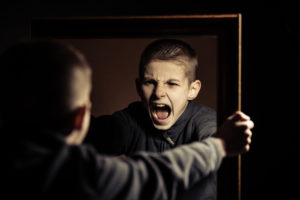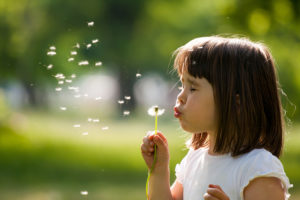Co-Regulation: Why, to help in a crisis, we need to be a cucumber
Have you ever noticed, that when a toddler has a tantrum, and the parent starts to escalate, that the toddler escalates even more?
No matter how much you tell someone having a panic attack to calm down, they just don’t calm down?
That if you yell at an angry person to chill out, they just get angrier?
When we try to calm a crisis, whilst feeling like a volcano, we tend to find the crisis just escalates.
Life works on energy, and when we are in a state of anxiety fuelled panic/anger or fear and can feel someone else’s energy coming across as being anxious/fearful/angry it just re-alerts our brain to the fact there is an issue…. so, we all escalate to a point of exhaustion.

Dysregulation
In a crisis, struggle, or period of dysregulation, the central nervous system enters ‘alert’, this can vary for each child, whether it is fight, flight, freeze, faint or fawn. Therefore, escalating together can mean that we add to the alert and increase the reaction. Dysregulation refers to when a child loses the ability, or has poor ability to manage or respond to their emotions.
Dysregulation can include:
- Anger
- Aggressive or violent behaviour
- Screaming or shouting
- Anxiety
- Panic attacks
- Self-harm
- Shame or embarrassment
- Irritability
- Frustration
- Controlling behaviours
- Extreme perfectionism
- Defiance
- Ritualistic patterns
- Suicidal thoughts
- Self-damaging behaviours (e.g overeating, alcohol misuse, drug misuse)
- Substance misuse
When a child or young person becomes dysregulated, they are overwhelmed by emotions that they do not know how to respond to. This causes stress or distress to them as they are unable to manage what is happening. The child is unable to keep their emotions under control or within an acceptable range of ‘typical’ behaviours. Whilst, for some children, over time and with development, they will balance these emotions, for others support is required to develop emotional regulation and awareness.
Emotional regulation impacts our interpersonal relationships, school performance and access, and our ability to function in society and the workplace. In addition, emotional dysregulation can be a risk factor for developing other mental health disorders in adulthood. Therefore, supporting children to regulate their emotions is incredibly important and we cannot just assume that they will gather this information alone or through experience.
However, it should be noted, that in some situations there are other causes to dysregulation, including trauma, and some disorders such as. ADHD (attention deficit hyperactivity disorder), ASD (autism spectrum disorder), Bipolar disorder, borderline personality disorder and PTSD to name a few.
So, what works better?
When we try to calm the crisis from the perspective of the cucumber (calm, cool and collected) the crisis de-escalates…

Co-Regulation
Our cucumber persona refers to co-regulation; our ability to self-regulate ourselves to help someone else. The concept of co-regulation relates to being warm and responsive when responding to others, which allows children to ‘understand, express and modulate their thoughts, feelings and behaviours’ (Murray et al, 2015). It uses our relationship with the child to bring comfort and safety.
Therefore, as a child becomes dis-regulated, and overcome with emotions, if we are able to self-regulate effectively, we can co-regulate with them. Helping to calm the storm and ease the struggles.
In addition, when we co-regulate, we help children to self-regulate.
Co-regulation includes:
- Not focussing on the behaviour
- Stay in the moment
- Maintaining patience
- Keeping your tone calm
- Empathise (through facial gesture, mirroring and presence)
- Reducing triggers and stressors
- Talking about emotions
- Helping them soothe
The benefits of co-regulation include:
- Able to feel in control
- Ability to express emotions
- Able to respond to our emotions
- Increased self-awareness
- Ability to self-soothe
- Increased problem solving skills
It starts with you
In order to co-regulate, as adults we need to self-regulate. When we can successfully regulate our own emotions we can best support children and young people. Self-regulation is an aspect of emotional intelligence and relates to recognising, knowing and responding to our emotions. We can do this by:
- Be aware of your own feelings during different situations and accept them- how does it feel in your body, make you feel, how does it impact you?
- Recognise the emotion that you are feeling in these moments – beyond happy, sad and angry, consider shame, embarrassment, jealousy, humiliation, envy…
- Be aware of your own behaviours and reactions in stressful situations – how do different situations make you react? ones you are in control of? out of control of? do not go to plan?
- Recognising your thoughts and beliefs about other people’s behaviours when things are stressful – how do you react or feel when someone else does something? What triggers you? What makes you feel comfortable or uncomfortable? Do you have any judgements? Stereotypes? Beliefs?
- Practice self-awareness – Do you know your strengths and weaknesses? What makes you feel good or bad? What triggers you? What causes you stress? How do you react to different situations? What is your reaction when you feel uncomfortable?
- Be able to implement self-soothing strategies in response to your own feelings
- Be able to respond to yourself compassionately when you are stressed
You might like to review our previous article about regulation activities to look at some options for regulating your own emotions: Find it here
© Dandelion Training and Development – All Rights Reserved
Further help
 For more articles about mental health visit – ARTICLES
For more articles about mental health visit – ARTICLES
To learn more about child and adolescent mental health visit – COURSES
For resources to support child and adolescent mental health visit –RESOURCES
